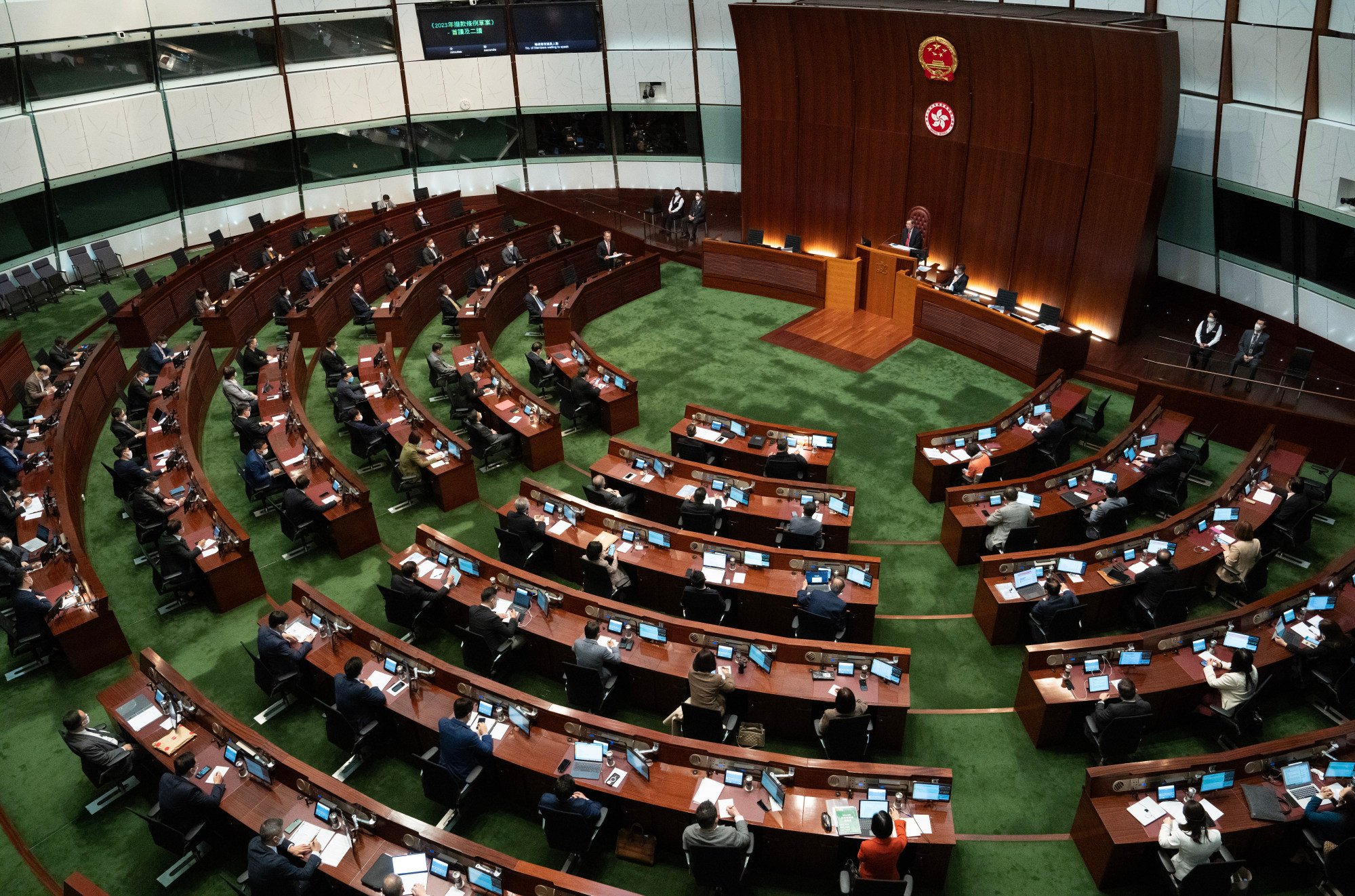
Paul Chan’s budget is only the start of a long road to recovery for resilient Hong Kong
- First post-Covid financial blueprint may leave some disappointed that there are not more sweeteners, but the road map has been drawn up for a speedy recovery in the most testing of times
Coming up with a blueprint to rebuild Hong Kong after three years of pandemic-related setbacks was never going to be easy. From renewing hope to tackling social woes and helping those in need, there is much to be done as the city embarks on a long journey of post-Covid recovery.
Financial Secretary Paul Chan Mo-po was well aware of the expectations and challenges as he tabled the new government’s first budget on Wednesday. Echoing the publicity for his budget consultation earlier, the blueprint is a colourful palette, with new directions and wide-ranging initiatives seeking to reboot the economy while relieving the pain of those still coping with the fallout from the pandemic.
Structured along the theme of “Leaping Forward Steadily, Together We Bolster Prosperity under Our New Vision”, the 83-page document focuses on high-quality development, speedy recovery and aligning with national development strategies.
Attracting talent and enterprises is one of the highlights. This includes a new capital investment entrant scheme to lure the wealthy, and a mechanism to facilitate companies domiciled overseas for “re-domiciliation” to Hong Kong.
But the need to nurture local talent has not been overlooked. No less than HK$600 million (US$76.5 million) has been earmarked for training in the aviation, maritime, innovation and construction industries. “While launching initiatives to compete for talent, the government’s foremost task is still to proactively nurture and retain local talent,” Chan said.
The budget is also loaded with medium to long-term drives on finance, innovation, green technology, a digital economy and internet infrastructure development. This includes HK$6 billion for the establishment of thematic research centres related to life and health technology, and HK$3 billion to enhance research in frontier technology fields, such as artificial intelligence and quantum technology.
A comitteee will be set up to promote green technology, green financing and standards certification.
Some of the initiatives might have been mooted some time ago. But they could not be implemented until this year, as the city starts to reconnect with the mainland and the world.
Admittedly, investments in innovation, technology and finance will not yield immediate results. The government needs to demonstrate stronger leadership and commitment if the policies are to bear fruit in the longer run.

Giveaways inevitable
Even though businesses and individuals are now facing fewer difficulties, Chan knows that his budget would not be welcomed without some giveaways. Understandably, the public is disappointed that a new round of consumption vouchers will be limited to just HK$5,000 per person, while the reductions in profit and income tax are capped at a maximum of HK$6,000.
But the government cannot be faulted for scaling back on sweeteners in light of the improving economy and shrinking public coffers. Chan described the approach as “moderately liberal”, saying 80 per cent of the budget resources would benefit the general public and small and medium-sized enterprises.
With more than HK$800 billion still in reserves, the community may be tempted to ask for more. This is especially true when government largesse over the years has already nurtured expectations on handouts every year.
But the prolonged pandemic and ongoing emigration wave have already fuelled concerns over public finance. Chan dismissed fears over any structural issues at this stage.
But the decision to raise tobacco duties and a five-year additional levy on soccer betting underlines the pressures facing the government. The need for a wider tax review should be seriously studied.
Promises made, now deliver
Despite criticisms over the overseas promotion drive of “Hello Hong Kong”, a new “Happy Hong Kong” campaign will be launched for locals to stimulate the economy. Chan said he was inspired by the happy scenes of people reconnecting with each other as Covid controls were relaxed.
While the city truly needs something more positive to look forward to after years of political, public health and economic crises, the “Happy Hong Kong” campaign risks becoming yet another underwhelming promotional gimmick if the details are not carefully thought through.
Chan, though, is convinced that the city can “forge ahead in the new era, on a new stage and along a new journey”. This is not the first time he has sought to paint a rosy picture.
However promising it may seem, the way forward depends on when and how the vision becomes reality. With the economy still weak and confidence fragile, Chan rightly acknowledged that many in society were still facing hardship.
Now that Covid-19 is seemingly in the rear-view mirror, the government must seize every opportunity and deliver on its promises to the people of Hong Kong.


